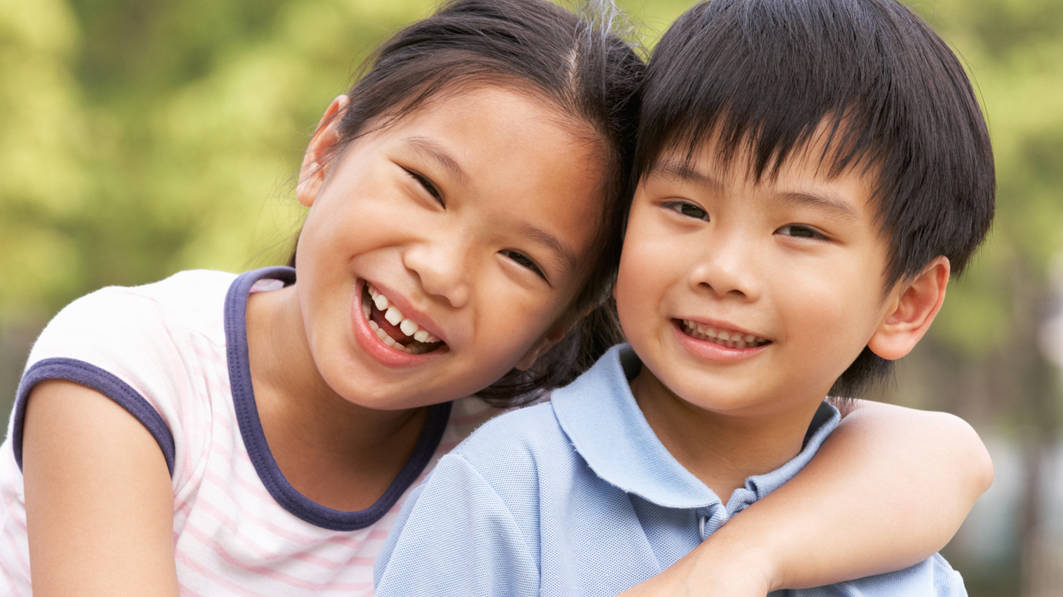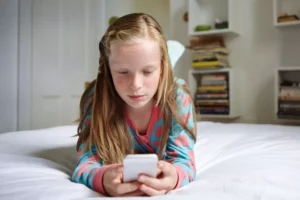“What’s going on here?” I demanded, alarm in my voice. My wife and I entered the family room to a chaotic scene in which our 9-year-old son and his 8-year-old sister were angrily yelling at each other and trading blows.
The two were quickly separated. Eyes full of tears, our daughter handed me a note her brother had written in large, bold letters: “You’re a … !” I won’t spell out here the rest of what was written, as it was full of crude language. But the message was clear. It was the worst insult my son could think to sling at his sister.
Once the hostilities were under control, my wife and I sent the kids to their rooms to cool off – and to give us time to figure out how to handle the situation. It was bad enough that they were fighting and using profanity. (Our daughter was equally guilty of hurling slurs at her brother, though hers were verbal, not written.) But we had a greater concern than our kids’ improper handling of their anger – that a precedent had been set in which they felt justified in denigrating someone else, making that person feel worthless; less than human, even.
This episode happened in January, which is Sanctity of Human Life Month, and I had already been mulling over how my wife and I could continue teaching our children about the inherent value of human life. Their fight, however, left me questioning what Christianity had taught me.
What is the sanctity of human life? Generally speaking, we usually say (and rightly so) that human life is of immeasurable value because we are made in the image of an eternal God Who created us and loves us more than we can fathom. And human life is sacred, no matter what stage it’s in – from the preborn child in its earliest embryonic state to the elderly person nearing death’s door.
What we often miss, though, is that the sanctity of human life isn’t just about valuing people at the beginning and end of their lives, but also every day in between. For example, how do we typically honor the sanctity of human life in our everyday dealings with those around us? Does it even factor in to how we think about and treat others? C.S. Lewis reminds us that it should in his essay “The Weight of Glory”:
“It is a serious thing … to remember that the dullest and most uninteresting person you can talk to may one day be a creature which, if you saw it now, you would be strongly tempted to worship. … It is in the light of these overwhelming possibilities, it is with the awe and the circumspection proper to them, that we should conduct all of our dealings with one another. … There are no ordinary people. You have never talked to a mere mortal.”
Both of our kids had communicated that their sibling was less than human; unworthy of the respect and dignity of an immortal soul created in the image of God. The weight of their words felt especially heavy in light of Jesus’ teaching in Matthew 5:21- as paraphrased in The Message:
“I’m telling you that anyone who is so much as angry with a brother or sister is guilty of murder. Carelessly call a brother ‘idiot!’ and you just might find yourself hauled into court. Thoughtlessly yell ‘stupid!’ at a sister and you are on the brink of hellfire. The simple moral fact is that words kill.”
Clearly, words have long-term consequences, especially when directed at another human being. In the heat of anger, our kids’ insults were certainly “careless” and “thoughtless.” That’s why it seemed wise and important to have them perform the opposite action – to put care and thought into expressing what they see as true and good about each other.
My wife and I decided to have our son and daughter each write a letter in which they listed five things they appreciate and value about the other. The emotional shift they experienced through this exercise was remarkable. Compelled to focus on their sibling’s positive qualities, they began to like each other again, and their anger quickly faded. More importantly, they had discarded the curses they had leveled against each other, exchanging blessings instead.
There was no overt lesson about the sanctity of life here. Our kids didn’t emerge from this situation with the sudden realization that everyone they meet is a fellow image-bearer of God. But it served as a reference point for my wife and me as we continue to teach our children that every human life is worthy of dignity and respect – starting with the ones we encounter every day.
Teach kids of all ages about the value of human life with “Valuing Life From the Start” – our free download filled with age-specific lessons and activities for kids.



















